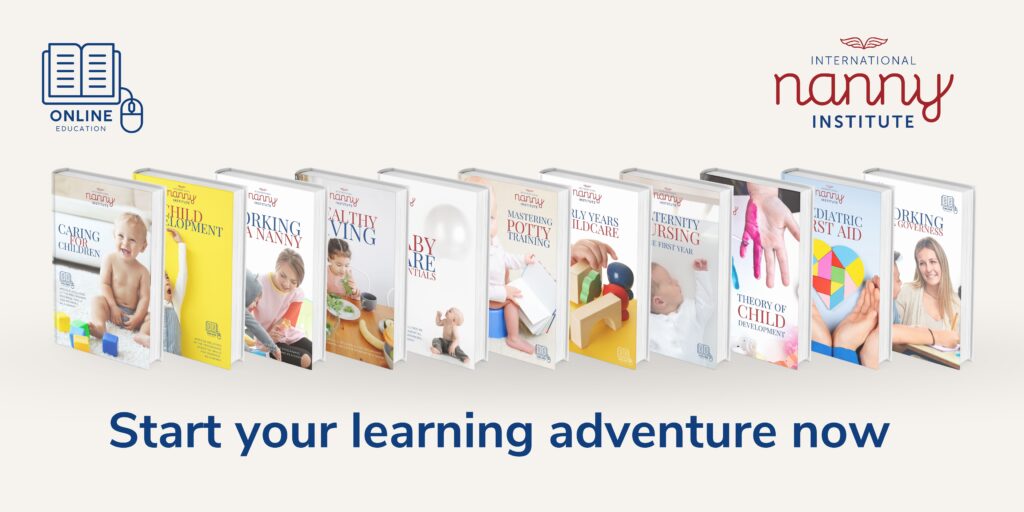Chores for Children
Chores are an essential aspect of childhood that can aid in the development of many important life skills. For children, chores provide a sense of responsibility, teach important life skills, and promote self-confidence. When working as a nanny, you will often work with the whole family, and may be asked to introduce or implement a chores’ rota.
Parents and caregivers can use age-appropriate chore lists to ensure that children of all ages are contributing to the household in a meaningful way. Here are some of the ways that chores can aid in child development, as well as age-appropriate chore lists for children from 2 years old to 18 years old.
How chores can aid in child development:
Being given chores to complete can help to support children across a range of different developmental areas and promote a variety of different skills. Here we take an overview of some of the ways in which chores can aid children’s development.

Responsibility
Assigning chores to children helps to instil a sense of responsibility in them. It gives children an opportunity to learn how to be accountable for their actions, develop self-discipline and learn how to prioritise tasks effectively. Moreover, it teaches them that they are part of a larger family unit, and they have a role to play in maintain the family’s environment and standard of living
Life Skills
Chores teach children valuable life skills. These skills can include cooking simple meals or snacks, doing laundry, basic house cleaning, and other daily household tasks. Learning to perform these tasks at a young age will prepare them for the future and make them self-sufficient, independent adults. It’s never too early to start developing life skills, and chores can provide this opportunity.
Teamwork
Sharing household chores helps children develop a sense of teamwork. It teaches them that working together towards a common goal can be rewarding and enjoyable. They learn cooperation, negotiation, and communication skills, which will be invaluable in their future interactions. By working on common household chores, children understand that helping each other and complementing each other’s work is important in achieving a shared goal.
Time Management
Kids learn how to manage their time effectively when they have chores. Chores teach children how to prioritise daily tasks, organise, and plan their day effectively. This skill will help them manage their future workloads and schedules, set priorities, and make the most of their time. By developing strong time management skills early, children learn to avoid procrastination and understand punctuality.

Sense of Accomplishment
Chores allow children to take pride in their accomplishments, no matter how small. When children complete their chores, they feel a sense of accomplishment and pride, which boosts their self-esteem and confidence. It helps children understand that their contributions are important and valuable to the family. This sense of achievement helps to reinforce positive behaviours and encourages children to take on new challenges.
Respect
When children are assigned chores, it teaches them respect towards their environment and surroundings. Cleaning up after themselves and completing assigned tasks helps children understand and appreciate the value of hard work and dedication. Children learn that keeping their living area clean and tidy creates a more healthy, comfortable living environment for themselves and others.
Financial Literacy
Some chores can be tied to earning an allowance or pocket money. For example, you could pay your kids for washing dishes or completing household laundry tasks. By linking chores to a financial reward, children learn the value of earning money and how to budget and save.
Age-Appropriate Chore Lists:
Of course, when it comes to chores it is never going to be one-size-fits-all, and we can’t expect children of different ages, stages and abilities to simply jump in and complete the same chores. Below we have some suggested chores suitable to different age ranges, but it is important that parents and caregivers select the chores they assign based on their own knowledge of each individual child to set them up for success.

2-3-Year-Olds:
- Putting toys away in their storage space
- Helping to put away groceries or items around the home
- Assisting with putting laundry in the hamper
- Simple dusting with child-size swifter
4-6-Year-Olds:
- Making their own bed
- Helping with setting and clearing the table
- Assisting with folding clothes and putting them away
- Watering plants
- Cleaning up spills or messes they may create

7-10-Year-Olds:
- More complex cleaning tasks such as vacuuming, sweeping or cleaning the floors
- Taking out the rubbish
- Cleaning the washbasin or toilet
- Assisting with food preparation, like making salads or setting the table for dinner
- Sorting laundry by colour or type, washing, and folding it.
11-14-Year-Olds:
- Dusting and polishing furniture and fixtures
- Washing dishes and loading/unloading the dishwasher
- Preparing simple meals independently
- Mopping, sweeping, or vacuuming floors
- Doing laundry independently of start to finish
15-18-Year-Olds:
- Taking care of pets, such as walking dogs or cleaning litter boxes
- Learning how to perform deep cleaning tasks
- Assisting with grocery shopping and meal planning (some families assign a teen one night in the week to cook dinner)
- Ironing clothes, including dresses, shirts and pants (a good way to get started with this is ironing school uniforms)
In conclusion, chores can be an excellent way for children to learn vital life skills and help promote their overall development. By using age-appropriate chore lists, parents and caregivers can ensure that children of all ages are learning responsibility, time management, work ethic, self-confidence and useful life skills.
Chores become especially important when working with teenagers, as they help to prepare them for adult life. Transitioning into adulthood is an important part of life, and nannies can help prepare teenagers for. You can learn more about this topic in our Navigating Adolescence course that delves into the responsibilities and nannies carry when helping adolescents transition into adulthood. If you’d like to learn more about how to make this time in a young person’s life as smooth as possible, visit us at www.international-nanny.institute to learn about how you can train being a highly skilled and sought after professional nanny.









